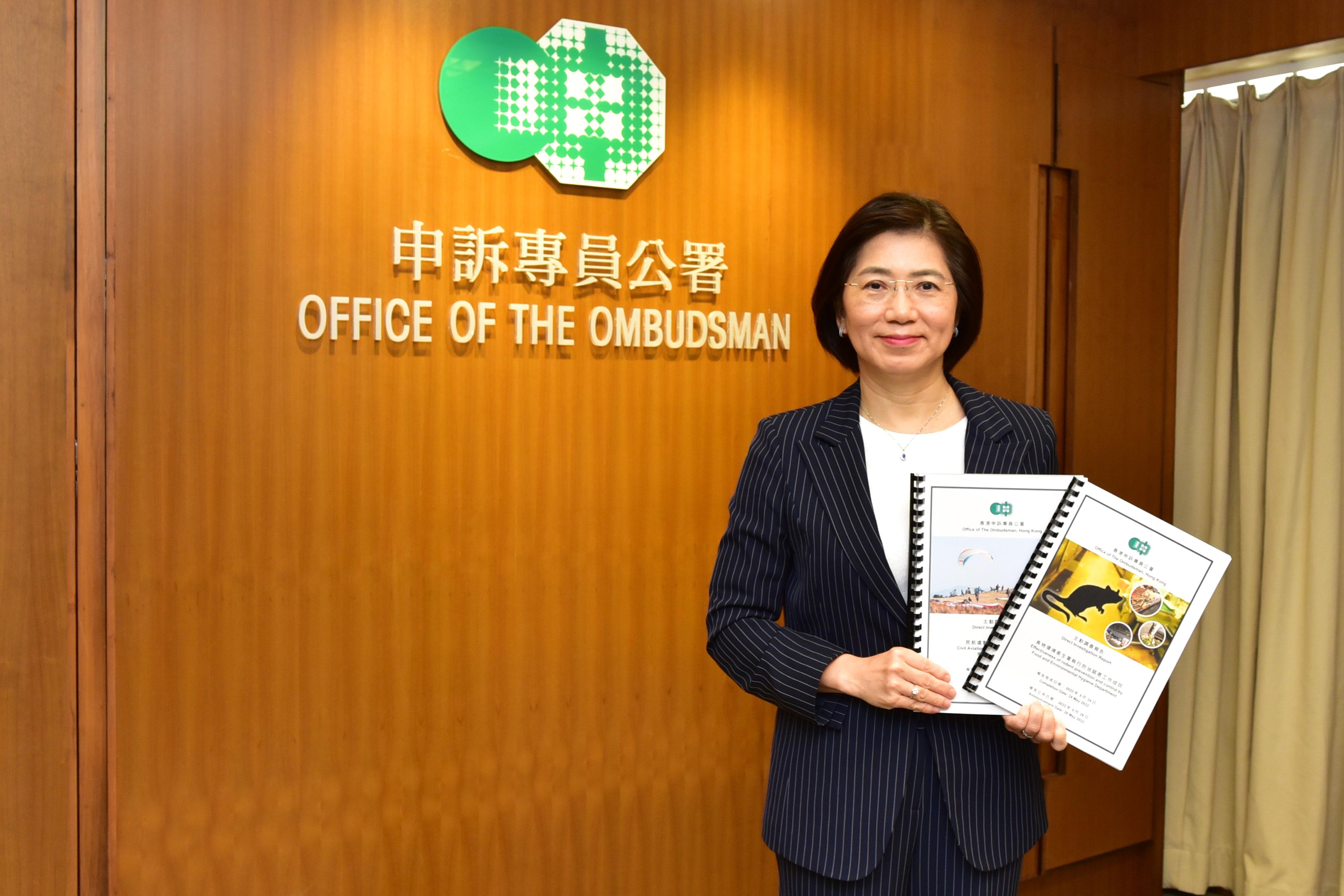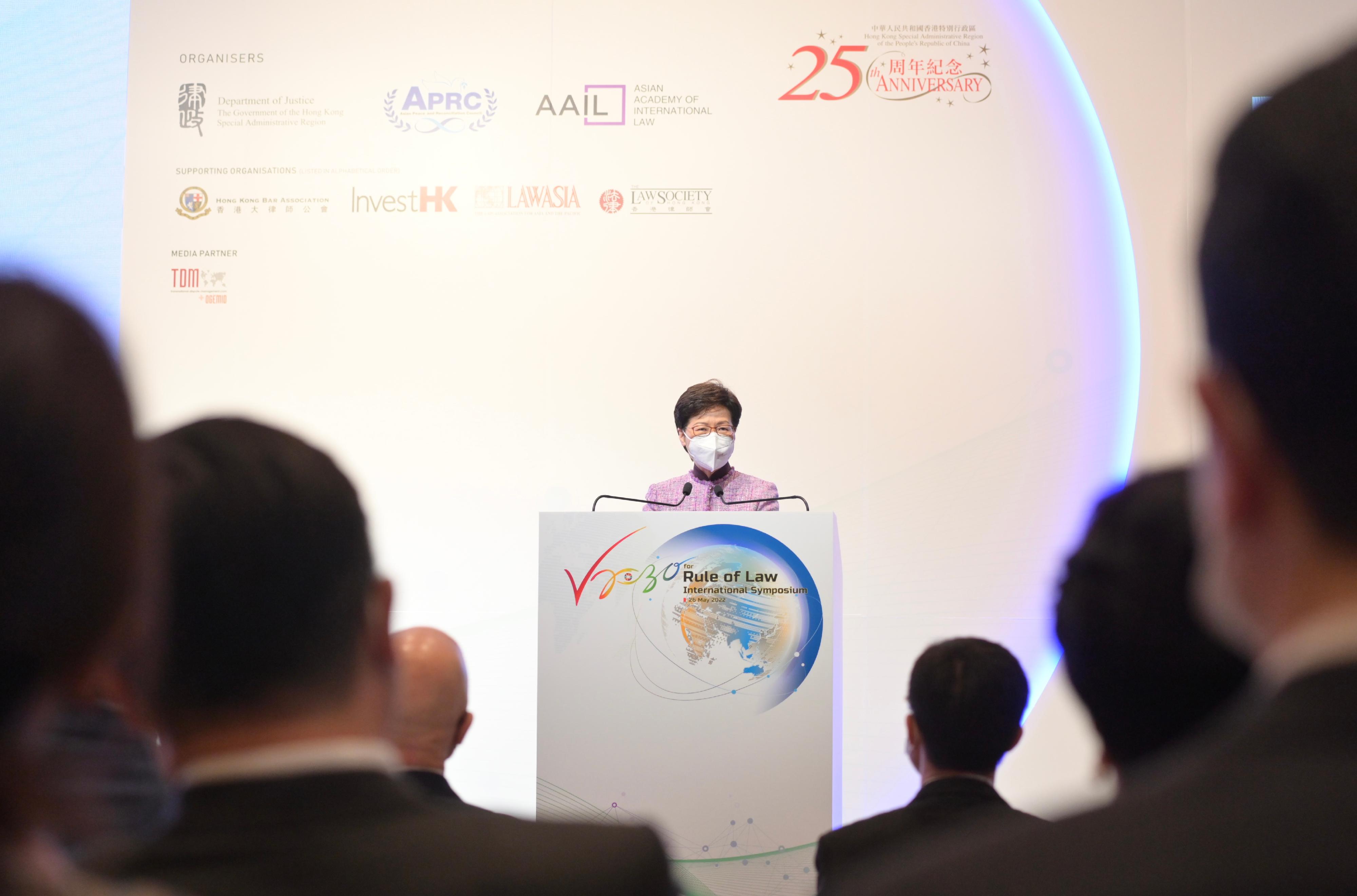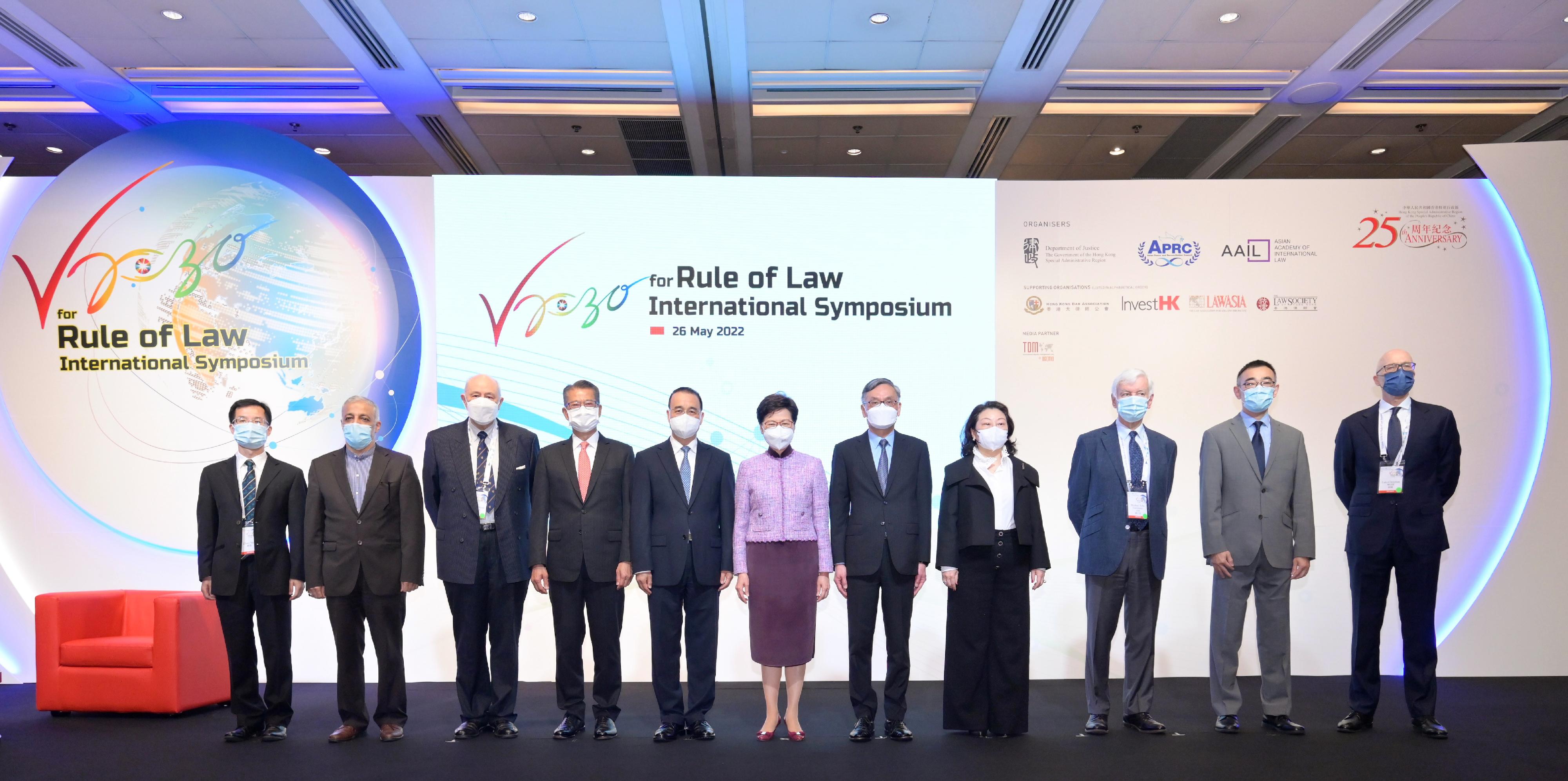Office of The Ombudsman announces results of direct investigation into effectiveness of rodent prevention and control by Food and Environmental Hygiene Department (with photo)
The following is issued on behalf of the Office of The Ombudsman:
The Ombudsman, Ms Winnie Chiu, today (May 26) announced at a press conference the completion of a direct investigation into the effectiveness of rodent prevention and control by the Food and Environmental Hygiene Department (FEHD), identifying three areas for improvement in the FEHD's work on rodent surveillance, rodent prevention and disinfestation, and application of rodent-related complaint data.
Investigation by the Office of The Ombudsman revealed that in the existing rodent infestation surveys (RISs) undertaken by the FEHD, the percentage of census baits gnawed by rodents in designated survey locations is aggregated to assess the extensiveness of rodent infestation within each survey location. Due to the limitations in the methodology of the RISs, their results (known as the rodent infestation rate (RIR)) could only show the percentage of rodent activity range within each survey location but not the actual number of rodents or the frequency of their appearances. In addition, the RISs are merely conducted every six months. Hence, the RIR generated from the surveys may not truly reflect the current extent of rodent infestation. The Office took the view that the FEHD should consider conducting RISs more frequently each year and explore the feasibility of formulating a "composite RIR" by incorporating factors that may help assess the extent of rodent infestation in the calculation.
On rodent prevention and disinfestation, the FEHD has intensified its cleaning and enforcement action in two potential hotspots of rodent activities, namely public markets and rear lanes. However, inspections by the Office still found different levels of hygiene problems in individual markets and rear lanes. Therefore, the FEHD should further strengthen the education and monitoring on market stall tenants and operators of shops adjoining rear lanes, while considering the adoption of a risk-based approach to work out systematically a list of markets requiring more focused action on cleanliness and anti-rodent control.
Information shows that the FEHD lacked analysis in rodent-related complaint data, causing its inability to fully grasp the trend of complaints and issues of public concern. Since October 2021, the FEHD has added the function of hotspot analysis to its Complaint Management Information System for more effective deployment of manpower and resources in rodent control. The Office will follow up with the FEHD to ensure the upgraded system's fulfilment of the expected administrative effectiveness.
The Ombudsman has made 11 recommendations to the FEHD for improvement. Details can be found in paragraph 6.25 of Chapter 6 of the investigation report.
The full investigation report has been uploaded to the website of the Office of The Ombudsman at www.ombudsman.hk for public viewing.


